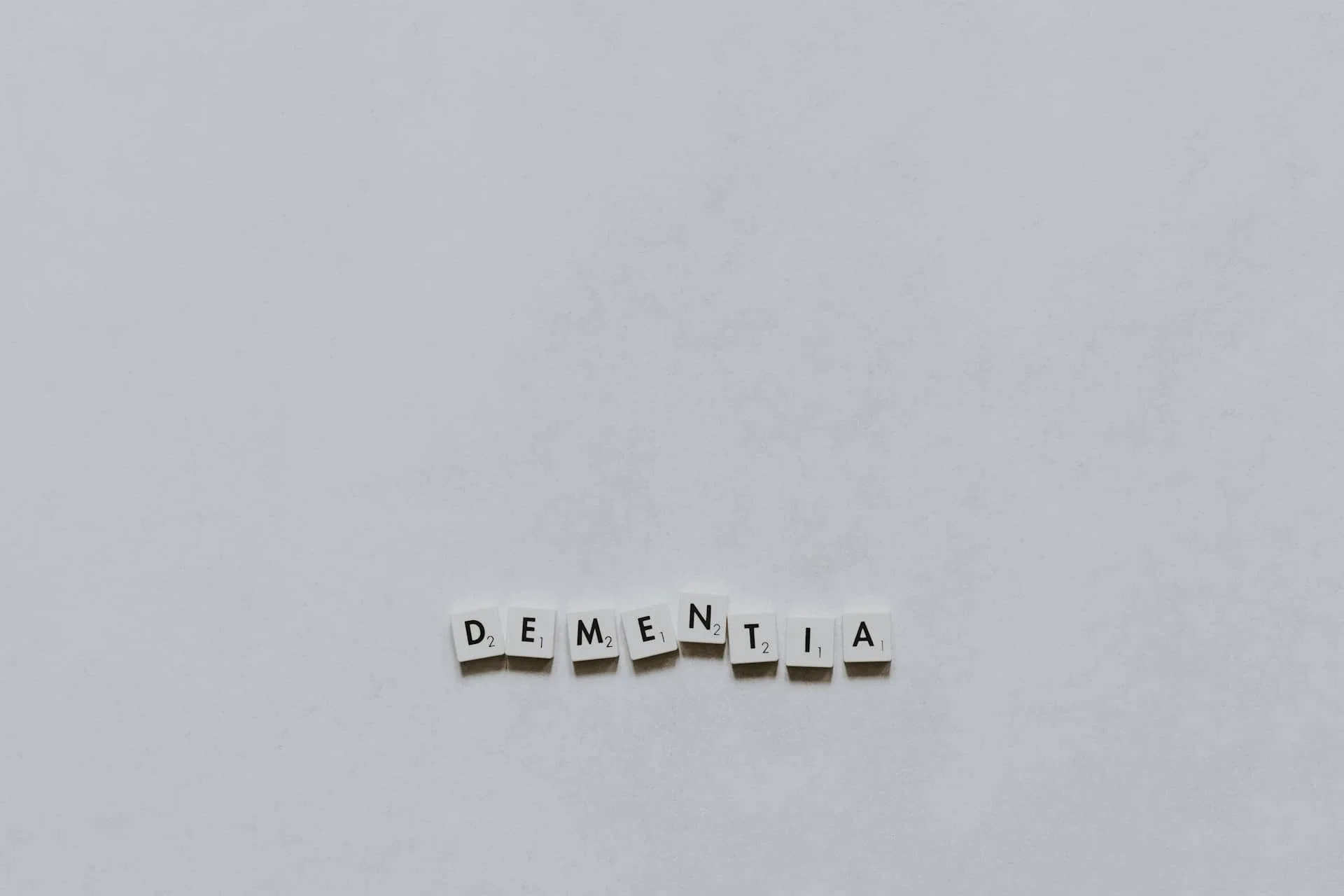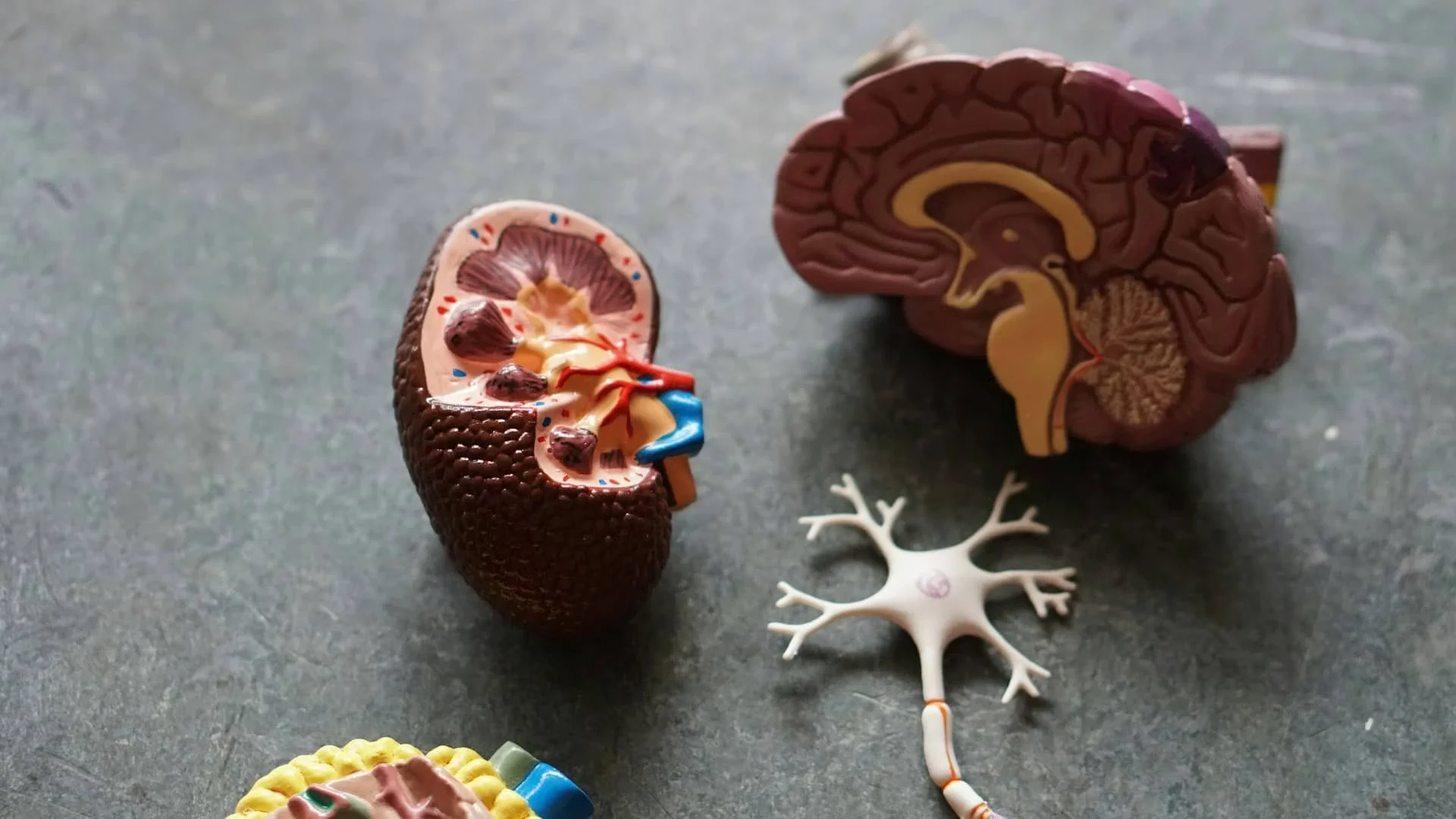Speech Therapy for Alzheimer's & Dementia in Delray Beach, FL
When Alzheimer's disease or dementia affects your loved one's ability to communicate, remember, or swallow safely, specialized speech therapy can help maintain their independence and dignity for as long as possible.
At Palm Beach Speech Therapy, licensed speech-language pathologist Nina Minervini, M.S., CCC-SLP provides compassionate, evidence-based in-home therapy for adults with Alzheimer's, dementia, and other neurocognitive disorders throughout Delray Beach, Florida. Nina works with patients and families to preserve communication skills, support memory function, ensure safe swallowing, and maximize quality of life at every stage of the disease.
Contact Nina for Alzheimer's & Dementia Speech Therapy in Delray Beach
Complete this quick form and Nina will contact you within 24 hours to discuss your needs.
Understanding Communication Changes in Alzheimer's and Dementia
Alzheimer's disease and related dementias progressively impact the brain, affecting not just memory but also language, communication, and swallowing abilities. These changes can be frustrating and isolating for both the person with dementia and their loved ones.
Communication challenges may include:
Word-finding difficulties and pauses mid-sentence
Forgetting the names of familiar people or objects
Difficulty following conversations or understanding what others say
Repeating the same questions or stories
Struggling to read, write, or use the phone
Changes in voice quality or speech clarity
Literal interpretation of language and missing humor or sarcasm
Reduced ability to express needs, feelings, or preferences
These symptoms typically worsen over time, but speech therapy can help slow progression, maintain existing abilities, and develop compensatory strategies that support communication throughout the disease journey.
How Speech Therapy Helps People with Alzheimer's and Dementia
Speech-language pathologists play a crucial role in supporting individuals with dementia and their families. While there's no cure for Alzheimer's disease, speech therapy focuses on maintaining function, maximizing independence, and improving quality of life for as long as possible.
Communication and Language Support
Speech therapy helps preserve and adapt communication abilities through:
Word-Finding Strategies – Techniques to help retrieve words, including circumlocution (describing the word), use of gestures, picture boards, and other alternative methods when words don't come easily.
Comprehension Support – Strategies for caregivers to communicate more effectively, such as using simple sentences, giving one instruction at a time, allowing extra processing time, and using visual cues.
Environmental Modifications – Creating a communication-friendly environment with reduced distractions, good lighting, clear labels, and memory aids like calendars, clocks, and written reminders.
AAC Implementation – When verbal communication becomes very difficult, augmentative and alternative communication tools like picture boards, communication cards, or simple speech-generating devices can help maintain connection.
Cognitive-Communication Therapy
Speech therapists address thinking skills that support communication and daily function:
Attention and Focus – Activities to improve sustained attention during conversations and tasks, reducing distractions that interfere with communication.
Memory Strategies – Using spaced retrieval, memory books, routines, and external aids to support recall of important information like names, daily schedules, and medication routines.
Problem-Solving and Reasoning – Maintaining executive function skills through structured activities, task analysis, and step-by-step guidance for daily activities.
Orientation Support – Helping individuals stay oriented to time, place, and person through consistent routines, visual cues, and memory aids.
Cognitive Stimulation Therapy
Research shows that cognitive stimulation can improve cognition, communication, and quality of life in people with mild to moderate dementia. Nina incorporates evidence-based cognitive stimulation activities that are:
Mentally engaging but not frustrating
Theme-based and meaningful to the individual's interests and background
Social and interactive
Focused on opinions and personal expression rather than factual recall
Activities might include reminiscence therapy, current events discussions adapted to cognitive level, word games, music therapy, and meaningful conversations about topics the person enjoys.
Swallowing and Feeding Support
As dementia progresses, many individuals develop dysphagia (swallowing difficulties) that can lead to choking, aspiration pneumonia, malnutrition, and dehydration. Nina provides comprehensive dysphagia assessment and management including:
Swallowing Evaluation – Identifying signs of unsafe swallowing and determining appropriate food and liquid textures.
Compensatory Strategies – Positioning techniques, pacing strategies, environmental modifications, and adaptive equipment to improve swallowing safety.
Caregiver Education – Training family members and caregivers on safe feeding techniques, recognizing swallowing problems, and managing mealtime behaviors common in dementia.
Cognitive-Based Dysphagia Management – Addressing challenges like forgetting to chew, oral apraxia (difficulty initiating swallowing), reduced attention during meals, and behavioral issues at mealtime.
Caregiver Education and Support
One of the most valuable aspects of speech therapy for dementia is educating and supporting family caregivers. Nina helps caregivers:
Understand the communication changes associated with dementia progression
Learn effective communication strategies that reduce frustration
Identify and respond to behavioral changes that signal unmet needs
Adapt their communication style as the disease progresses
Recognize signs of swallowing difficulties and unsafe eating
Access community resources and support services
Practice self-care and manage caregiver stress
In-Home Alzheimer's & Dementia Therapy Across Boynton Beach
Types of Dementia Nina Treats in Delray Beach
Alzheimer's Disease
The most common cause of dementia, Alzheimer's disease typically begins with short-term memory loss and progresses to affect language, reasoning, and eventually all cognitive functions.
Speech therapy focuses on maintaining communication abilities, supporting memory with compensatory strategies, and managing swallowing difficulties in later stages.
Vascular Dementia
Caused by reduced blood flow to the brain from strokes or other vascular problems, vascular dementia often affects executive function, problem-solving, and processing speed.
Speech therapy addresses communication breakdowns, cognitive deficits, and any co-occurring speech difficulties from stroke.
Lewy Body Dementia
This form of dementia is characterized by visual hallucinations, fluctuating cognition, and Parkinson's-like movement symptoms.
Speech therapy addresses both cognitive-communication changes and motor speech difficulties that may affect voice quality and articulation.
Frontotemporal Dementia (FTD)
FTD affects personality, behavior, and language earlier than memory.
Speech therapy is particularly important for FTD variants that cause primary progressive aphasia, where language abilities deteriorate while memory remains relatively intact initially.
Mixed Dementia
Many individuals have more than one type of dementia simultaneously, most commonly Alzheimer's disease combined with vascular dementia.
Speech therapy addresses the unique combination of symptoms present in each individual.
Parkinson's Disease Dementia
Some individuals with Parkinson's disease develop dementia as the disease progresses.
Speech therapy addresses both the motor speech changes (dysarthria, reduced voice volume) and cognitive-communication deficits.
Stages of Dementia and Speech Therapy Goals
Speech therapy goals and strategies differ depending on the stage of dementia. Nina tailors treatment to match each individual's current abilities and needs.
Early-Stage Dementia
At this stage, individuals may notice mild memory problems, word-finding difficulties, and occasional confusion, but can still function relatively independently.
Speech therapy focuses on:
Establishing baseline communication and cognitive abilities
Teaching compensatory strategies for word-finding and memory
Implementing external memory aids (calendars, planners, lists, medication organizers)
Maximizing preserved strengths while they can still learn new strategies
Supporting emotional adjustment to diagnosis
Planning for future communication needs
Educating family on what to expect and how to help
Middle-Stage Dementia
This stage involves increased memory loss, confusion about recent events and surroundings, difficulty recognizing people, personality changes, and greater need for assistance with daily activities.
Speech therapy focuses on:
Adapting communication strategies as abilities change
Simplifying memory aids and compensatory strategies
Supporting functional communication for basic needs
Managing behavioral changes through communication approaches
Addressing swallowing difficulties if present
Intensive caregiver training on effective communication techniques
Maintaining social engagement through appropriate activities
Preserving dignity and personhood despite increasing deficits
Late-Stage Dementia
In advanced dementia, individuals may have very limited verbal communication, require total care, and experience significant swallowing difficulties.
Speech therapy focuses on:
Alternative communication methods to reduce frustration
Ensuring safe, comfortable eating and drinking
Training caregivers to interpret nonverbal cues and behaviors
Maintaining comfort and quality of life
Supporting family members through this difficult stage
Advising on end-of-life communication and decision-making
Evidence-Based Therapy Techniques for Dementia
Nina uses research-supported interventions proven effective for maintaining function in dementia:
Spaced Retrieval Training
This memory technique uses expanding time intervals to help individuals retain important information like names, locations of items, or how to use memory aids. Research shows spaced retrieval can be effective even in moderate dementia.
Errorless Learning
This approach minimizes mistakes during learning by providing immediate cues and support, preventing the person from practicing errors. It's particularly effective for teaching functional tasks and routines.
External Memory Aids
Written reminders, memory books with important information and photos, calendars, medication organizers, communication boards, and programmable devices that provide reminders at appropriate times.
Montessori-Based Dementia Programming
This person-centered approach emphasizes meaningful, hands-on activities that match the individual's abilities and interests, promoting engagement and independence.
Environmental Modifications
Adjusting the physical environment to support memory and communication: labels on doors and drawers, contrast colors to highlight important items, reducing clutter and distractions, ensuring good lighting.
Validation Therapy
Rather than correcting or arguing with someone with dementia, validation therapy acknowledges their feelings and experiences, reducing agitation and improving communication.
Why Choose Palm Beach Speech Therapy for Dementia Care in Delray Beach?
Specialized Expertise in Neurodegenerative Conditions
Nina is a licensed, ASHA-certified speech-language pathologist with specialized training in cognitive-communication disorders and dementia care. She understands the progressive nature of these conditions and how to adapt therapy as needs change.
Compassionate, Person-Centered Care
Every person with dementia is unique, with a lifetime of experiences, preferences, and relationships that define who they are. Nina honors each individual's dignity and personhood, focusing on what they can still do rather than only on deficits. She partners with families to understand the person's history, values, and what brings them joy.
In-Home Therapy in Familiar Surroundings
Therapy in the home environment is especially beneficial for people with dementia. Familiar surroundings reduce confusion and anxiety. Nina can assess real-world challenges in the home, implement strategies where they'll actually be used, and train family caregivers in the natural caregiving setting.
Family-Focused Approach
Dementia affects the entire family system. Nina provides education, emotional support, and practical strategies for family caregivers, recognizing that supporting the caregiver is essential to supporting the person with dementia.
Evidence-Based but Flexible Treatment
While Nina uses research-supported interventions, she understands that every individual responds differently. She continuously adapts her approach based on what works for each person, maintaining realistic goals that preserve quality of life.
Coordination with Healthcare Team
Nina collaborates with physicians, neurologists, memory care specialists, occupational therapists, social workers, and case managers to ensure comprehensive care. She provides detailed documentation for medical records and can assist with recommendations for additional services as needed.
What to Expect from Speech Therapy Sessions
Initial Evaluation
Nina conducts a comprehensive assessment including:
Interview with patient and family about concerns, history, and goals
Formal and informal testing of language, cognition, and memory
Communication observation in natural conversation
Swallowing screening if indicated
Assessment of current strategies and support systems
Environmental and safety assessment
Caregiver needs assessment
The evaluation results in a detailed treatment plan with functional, meaningful goals developed collaboratively with the family.
Ongoing Therapy Sessions
Sessions are typically 45-60 minutes and occur in the home on a schedule that works for the family. Frequency depends on individual needs, insurance coverage, and stage of dementia, often 1-3 times per week initially, transitioning to less frequent sessions as caregivers become more independent in implementing strategies.
Each session includes:
Activities and exercises targeting current therapy goals
Practice of compensatory strategies in real-life situations
Caregiver training and education
Adjustment of strategies based on response
Documentation of progress and modifications to the plan
Maintenance and Supportive Care
As dementia progresses, therapy often shifts from restorative goals (improving function) to maintenance goals (slowing decline) to supportive care (maximizing comfort and quality of life). Nina provides ongoing consultation as needs change, helping families navigate transitions and adapt to new challenges.
Areas Served in Delray Beach and Beyond
Palm Beach Speech Therapy proudly serves neighborhoods throughout Delray Beach including Atlantic Dunes, Tropic Isle, Lake Ida, Marina Historic District, Pineapple Grove Arts District, Seagate, The Hamlet, Barwick Park, Veterans Park, Delray Dunes, Oriole, Southridge, Village by the Sea, Bexley, Seagate of Delray, Atlantic Shores, Seacrest Estates, Palm Trail, Lake Ida Shores, Coral Trace, Crosswinds, Delray Beach Club, Delray Shores, East Delray Beach, Lindsley Lumber, and the Beaches area along A1A.
Service extends throughout the surrounding communities of Boca Raton, Highland Beach, Boynton Beach, Gulf Stream, Ocean Ridge, and other Palm Beach County locations. Contact me to confirm service availability in your specific area.
Insurance and Payment Options
Speech therapy for dementia-related communication and swallowing disorders is often covered by insurance when medically necessary and prescribed by a physician. Nina accepts Medicare and many private insurance plans.
Services that may be covered include:
Speech-language evaluation
Cognitive-communication therapy
Swallowing evaluation and treatment
Caregiver training as part of treatment
Ongoing maintenance therapy when appropriate
Nina provides all necessary documentation for insurance authorization and works with families to maximize coverage while ensuring appropriate care.
Get Started with Speech Therapy for Alzheimer's or Dementia in Delray Beach
If your loved one is experiencing communication difficulties, memory problems, or swallowing concerns related to Alzheimer's disease or dementia, speech therapy can help maintain their abilities and quality of life.
Don't wait to get support for your loved one and your family.
Schedule an in-home dementia speech therapy evaluation in Delray Beach by calling Nina Minervini at (561) 797-2343 or visiting speechpalmbeach.com/contact.
Nina looks forward to partnering with your family through this journey.
Frequently Asked Questions About Dementia Speech Therapy in Delray Beach, FL
At what stage of dementia should we consider speech therapy?
Early intervention is ideal, as individuals can learn compensatory strategies while they still have the cognitive ability to do so. However, speech therapy can be beneficial at any stage. Early-stage therapy focuses on maintaining independence and teaching strategies. Middle-stage therapy emphasizes functional communication and caregiver training. Late-stage therapy ensures comfort, safety with eating, and quality of life. Even if your loved one has advanced dementia, a speech therapist can help caregivers communicate more effectively and manage swallowing safely.
Will speech therapy improve my loved one's memory?
Speech therapy cannot reverse or cure the memory loss caused by Alzheimer's disease or dementia, as these are progressive neurodegenerative conditions. However, speech therapy can help maintain memory function for as long as possible, teach strategies to work around memory problems, and implement external memory aids that support daily functioning. The goal is not to restore memory but to maximize quality of life despite memory impairment.
How is speech therapy different from memory care programs?
Memory care facilities provide comprehensive residential care, supervision, and activities for people with dementia. Speech therapy is a specialized medical service that specifically addresses communication, cognition, and swallowing problems through individualized assessment and treatment. Speech therapy can be provided in any setting—at home, in assisted living, in memory care facilities, or in outpatient clinics. Nina's in-home therapy allows individuals to remain in their own homes with family support while receiving expert speech-language intervention.
Can speech therapy help with behavioral problems in dementia?
Many behaviors in dementia result from communication breakdowns—the inability to express needs, understand others, or cope with a confusing environment. Speech therapists help identify unmet communication needs driving behaviors and teach caregivers strategies to reduce frustration and agitation. While speech therapists don't provide behavioral therapy per se, improving communication often significantly reduces challenging behaviors.
Should I correct my loved one when they say something wrong?
Generally, no. Constantly correcting someone with dementia increases frustration, anxiety, and agitation without improving their abilities. Speech therapy includes training caregivers on when to gently redirect versus when to validate and "join their reality." The goal is effective communication and emotional connection, not factual accuracy. Nina will teach you validation techniques and therapeutic communication strategies tailored to your loved one's stage of dementia.
What if my loved one doesn't think they need speech therapy?
Lack of awareness of deficits (anosognosia) is common in dementia. Individuals may not recognize their own communication or memory problems. Nina is experienced in engaging individuals with dementia who may be resistant to therapy. She frames sessions as conversations and activities rather than "therapy," builds rapport gradually, and makes sessions enjoyable and non-threatening. The focus is on what the person can do and wants to do, not on pointing out deficits.
How do you handle swallowing problems in people with dementia?
Swallowing difficulties in dementia are complex because they involve both physical swallowing impairment and cognitive issues like forgetting to chew, getting distracted during meals, or refusing food. Nina assesses both aspects and develops a comprehensive plan that may include modified food and liquid textures, positioning strategies, environmental modifications to reduce distractions, cueing techniques, and extensive caregiver training. The goal is safe, pleasurable eating for as long as possible.
Does insurance cover speech therapy for dementia?
Yes, when medically necessary. Medicare and most private insurance plans cover speech therapy for communication and swallowing disorders related to dementia when prescribed by a physician. Coverage requirements vary by plan. Some plans limit the amount of therapy per year, while others have different criteria for what qualifies as "medically necessary." Nina handles all documentation and authorization processes and will work with your insurance to maximize coverage.
How often will my loved one need speech therapy?
This varies greatly based on the stage of dementia, specific deficits, insurance coverage, and goals. Typically, therapy begins 2-3 times per week for several weeks to establish strategies and train caregivers. As caregivers become more independent in implementing techniques, frequency may reduce to weekly or monthly sessions for monitoring and adjustment. Some families benefit from periodic check-ins as dementia progresses and new challenges arise. Nina will recommend a schedule based on individual needs.
Can speech therapy help someone who no longer talks?
Yes. Even when verbal communication is very limited or absent, speech therapy can help in several ways: identifying alternative communication methods (gestures, picture boards, communication devices); interpreting nonverbal communication and behaviors; training caregivers to communicate in ways the person can understand; ensuring safe swallowing; and maintaining human connection and dignity. Communication is more than just words, and speech therapists are experts in all forms of communication.
Let's Support Your Loved One Together
Caring for someone with Alzheimer's disease or dementia is one of life's greatest challenges. You don't have to do it alone. Fill out the form below and Nina will contact you within 24 hours to discuss how speech therapy can help your loved one maintain their abilities and quality of life.
Let’s do this together.
If your loved one is facing an Alzheimer’s or dementia diagnosis in Delray Beach, I’m here to help. Fill out the form below and I’ll contact you within 24 hours to discuss your needs and schedule a session.






